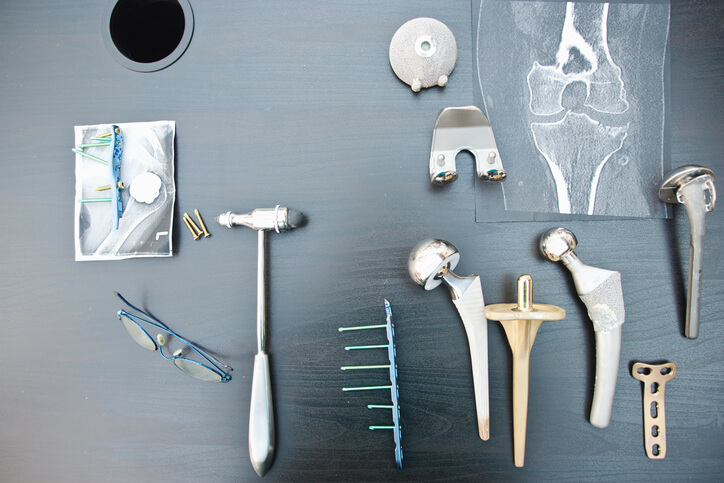Smith & Nephew, a major manufacturer of metal-on-metal hip implants, voluntarily recalled two device systems in November 2016. The company pulled its Modular SMF and Redapt hip systems — both metal-on-metal products — completely off the market. This came after extensive evidence showed metal-on-metal hip implants can cause serious health complications. And the UK-based manufacturer plans to settle any claims from patients already using the faulty hip implants. According to 2015 financial reports, the company set aside $203M to settle claims involving these two specific MoM hip implants.
What Led Smith & Nephew to Recall Certain Hip Implants?
All Smith & Nephew hip implant claims are now consolidated under MDL 2775 in Maryland. MDL stands for multidistrict litigation — a legal move that consolidates lawsuits from multiple plaintiffs against a single defendant. Because so many patients reported the same injuries with these particular hip implants, this MDL may help resolve those claims faster. Most MDLs help centralize anywhere between a few dozen to several hundred cases. To date, 259 plaintiffs joined MDL 2775, but the number will likely rise as more victims file compensation claims.
Allegations In Current Litigation Against Smith & Nephew’s Recalled Modular SMF & Redapt Hip Implants
An MDL can only be formed when many different plaintiffs share nearly identical allegations against a single defendant. Some common allegations against Smith & Nephew include:
- Metal poisoning. Metal-on-metal hip implants are notorious for causing metal poisoning — or metallosis. It’s caused when metal on metal parts rub against each other, causing debris to be released into a patient’s bloodstream. Metallosis leads to serious inflammation and pain.
- Necrosis. If metallosis persists without treatment, necrosis occurs. This is when the tissue or bone surrounding your implant dies. When necrosis happens, the tissue around your artificial hip joint turns gray or black and becomes unstable. This inevitably leads to dislocation, bone loss and sudden fractures.
- Infection. An infection in the deep tissue that’s around your implant can be very serious. Antibiotics may not fight the infection off completely; in many cases, you’ll need revision surgery to replace the faulty implant.
- Premature Implant Failure. Most hip replacements should last between 15-20 years. After that, most patients need revision surgery to swap out old implants. But those with metal-on-metal implants often require surgery much sooner than that, a recent Bone and Joint Journal study shows. The study analyzed records for more than 24,500 patients that received metal-on-metal hips between 2003 and 2012. “The five-year revision rates were significantly increased for all primary MoM {total hip arthroplasties} undertaken from 2007 onwards,” the study concludes.
- Permanent Disability. A 2015 study found metal-on-metal implants can lead to permanent disability in some patients.
How Anyone With Recalled Smith & Nephew Hip Implants May Qualify for a Cash Settlement
Doctors are now warning patients about the risks involved with metal-on-metal hip implants. However, they’ve been popular in the U.S. since the 1970s, leaving many patients unaware about the potential dangers. Thousands required serious medical procedures and even died because manufacturers failed to sufficiently warn consumers.
Companies like Smith & Nephew put aside funds specifically to settle damages in cases involving their now-recalled hip implants. To see if you may qualify for a cash settlement, complete your free online claim evaluation today. You’ll answer just a few brief questions to confirm your claim’s eligibility before you file. Once you’ve submitted your information, an experienced lawyer will call to discuss how to get the compensation and justice you deserve.
Related: Metallosis: What to Know Before Your Hip Replacement Surgery
